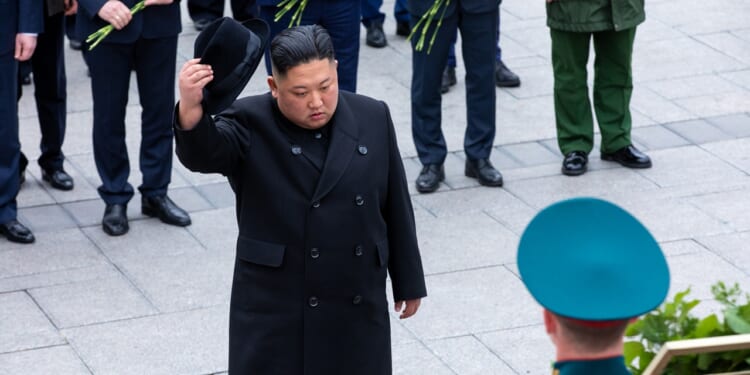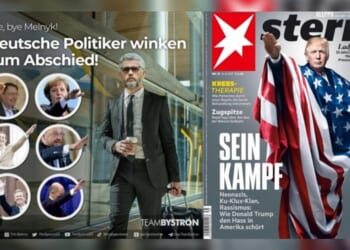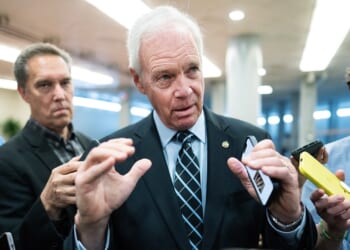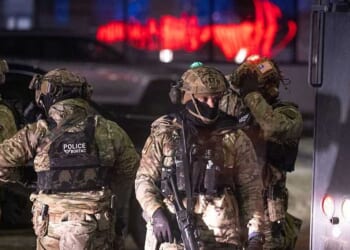By making North Korea an indispensable partner with Russia, Kim Jong-un has placed North Korea in its best geopolitical position in history.
North Korea is one of the most backwards and reclusive nations in existence. Ruled by a familial cult of personality, the Kim family has reigned supreme there since the end of the Second World War. Initially part of the global communist revolution led from the now defunct Soviet Union, by the end of the Cold War, the regime had all but given up on its communist pretensions and simply become an authoritarian, hereditary regime led by men who were as merciless as they were powerful.
The overwhelming police state from the communist days was held over, but gone are the days of calls for a “worker’s paradise.” Now, one man—and his family—rule above all others. And they enjoy a religious-like level of worship from their captured people—most of whom have lived under the Kim family for so long that they have no clue about the outside world.
For many years, it looked as though North Korea’s isolation would continue. In fact, despite being nominally aligned with China and Russia, as well as other “rogue” states such as Iran and Venezuela, it looked like Pyongyang was in a strategic box (partly self-imposed) that it would not break out of anytime soon. This was especially so after Kim Jong-il, the second member of the Kim family to rule over North Korea with an iron fist, passed and was replaced by his young son, Kim Jong-un.
Kim Jong-un Has Foiled Every Attempt to Undermine Him
Indeed, when Kim Jong-un first assumed power, forces within Pyongyang aligned with China sought to control him from behind the scenes. Immediately, young Mr. Kim dispatched his China-aligned advisers—such as his uncle—with a gruesome efficiency that sent shockwaves even in the halls of power in Beijing. Kim signaled that he would not be just a puppet for Beijing any more than he would allow his country to be bullied by the United States.
Then came the big breakdown in relations between China and North Korea. In 2017, at an airport in Malaysia, a team of North Korean assassins used a biological weapon to murder Kim Jong-un’s half-brother, Kim Jong-nam. Unbeknownst to many at the time, the other Kim was protected by a mostly Chinese staff of bodyguards. That is because he was being groomed by Beijing to quietly replace Kim Jong-un, to ensure that the Chinese would continue to have the kind of hold over Pyongyang that they enjoyed during the reign of Kim Jong-il. Kim Jong-un successfully headed them off—again.
This, then, led to the strangest event in Donald Trump’s first term: the rapprochement with North Korea. After having initially gotten into a nasty war of words (over social media, of course), that reality television-like spat ended in a general cooling of tensions. Of course, that ended when Joe Biden became the 46th American president—though it was already breaking down at the end of Trump’s first term.
It’s very likely that what transpired during his first term was a strategic maneuver by Kim to get China off his back, which never fully trusted him because they feared they could not totally control him. But the Americans under Biden were not interested in negotiating with Kim over his insistence on acquiring nuclear weapons. They tried to put him back in the strategic box they’d placed him in.
North Korea Is Now a Vital Russian Partner
Then came the Ukraine War and the greatest opportunity for Kim to ensure he could never again be placed back inside the box that the West had sealed his regime inside of for so many years. Recognizing that the world was entering a tripolar era of great power politics—in which a declining United States, a resurgent Russia, and a rising China all competed—Kim maneuvered his regime close to Russia.
Russia needed manpower and material support at a time in which they were locked in what Moscow viewed as an existential struggle with NATO over the fate of Ukraine. Recognizing this once-in-a-lifetime opportunity, Kim drove a hard bargain with Putin. In exchange for sending North Korean troops to be used by the Russians as cannon fodder in the killing fields of Ukraine, and for Pyongyang’s large stores of ammunition and weapons, Moscow would furnish Pyongyang with advanced weapons designs and other technologies to rapidly modernize North Korea’s large but backwards military.
The Ukraine War, and America’s primary destabilizing role in that war, prompted China to nestle in with Russia. Thus, North Korea not only got Russia more fully on their side, but they also put an end to the covert shenanigans China was subjecting North Korea to ever since Kim Jong-un became the leader.
Kim Jong-un Is Smarter Than He Looks
All this proves is that, contrary to his image in the West as a hapless, pudgy, perennially isolated dictator, Kim Jong-un is a savvy—albeit brutal—master strategist who has done more to further the interests of his regime on the global stage possibly more than either his grandfather, North Korea’s founder Kim Il-sung, or his father.
Rumors abound that Trump hopes to restore his previous good relations with Kim Jong-un. Unlike during Trump’s first term, however, Kim does not seem to care, given that he has now solidified an alliance with Russia in which he has much leverage—and, by extension, an understanding with Beijing.
At a time when the American position around the world is collapsing, Kim Jong-un should not be underestimated or dismissed as just another petty tyrant. This man is a serious operator today, and he will not be easy to mollify.
About the Author: Brandon J. Weichert
Brandon J. Weichert is a senior national security editor at The National Interest. Recently, Weichert became the host of The National Security Hour on America Outloud News and iHeartRadio, where he discusses national security policy every Wednesday at 8pm Eastern. He is also a contributor at Popular Mechanics and has consulted regularly with various government institutions and private organizations on geopolitical issues. Weichert’s writings have appeared in multiple publications, including The Washington Times, National Review, The American Spectator, MSN, and the Asia Times. His books include Winning Space: How America Remains a Superpower, Biohacked: China’s Race to Control Life, and The Shadow War: Iran’s Quest for Supremacy. His newest book, A Disaster of Our Own Making: How the West Lost Ukraine is available for purchase wherever books are sold. He can be followed via Twitter @WeTheBrandon.
Image: Shutterstock / Alexander Khitrov.


















